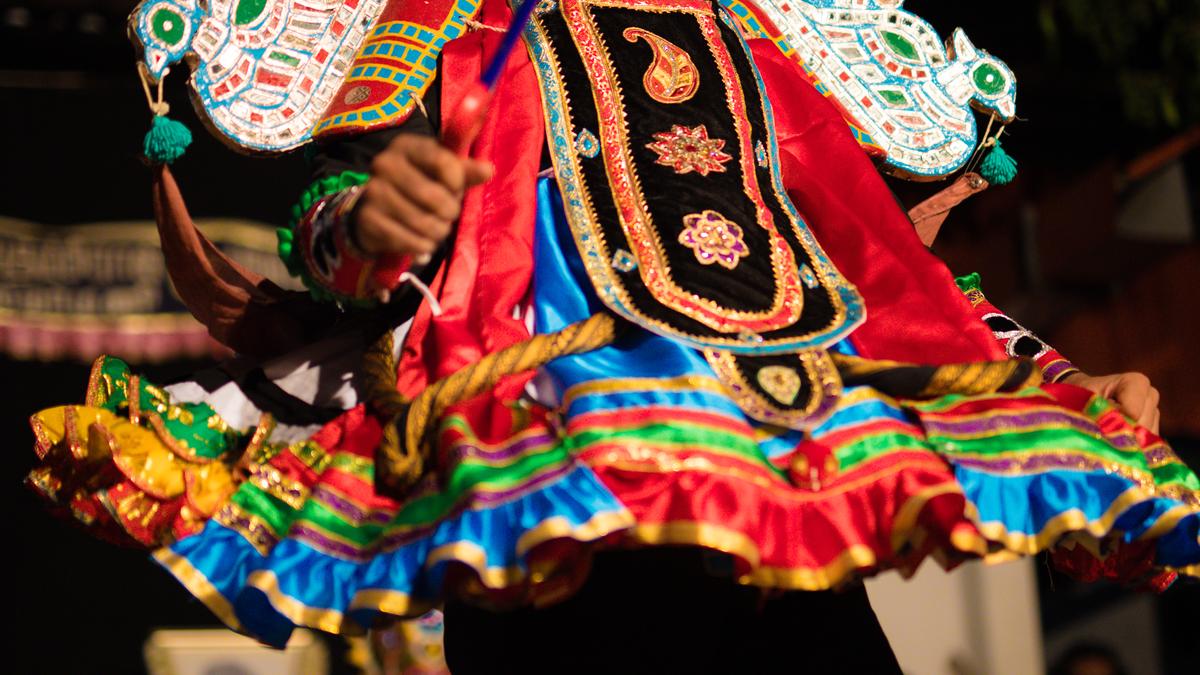
Watch the therukoothu play ‘Panchali Sabatham’ in Coimbatore
The Hindu
Experience a condensed version of the epic Mahabharata tale Panchali Sabatham in a one-hour stage performance this weekend.
The street play Panchali Sabatham originally lasts an entire night. “It is usually performed from 10.30pm and goes on till 6am the next day,” says therukoothu veteran PK Sambandan. The 72-year-old, who runs the Purisai Duraisamy Kannappa Thambiran Therukoothu troupe in Purisai village in Thiruvannamalai district, is bringing the play to the city this weekend.
This version though, is suited for stage performances, and is an hour long. The play is being organised and performed by city-based Udalveli Arts Foundation in association with Purisai Duraisamy Kannappa Thambiran Parambarai Therukoothu Manram, and is produced by Chennai-based Ilulu, a collective that aims at providing economic stability for artistes. “The idea is to take the art form of therukoothu to children,” says Dharanidharan, the founder of Udalveli. “They might have seen or read about it in textbooks; we want to show that them what it really is.”
It is possible to narrate a dense and layered story from the epic Mahabharata in 60 minutes? “Yes,” says Sambandan, adding that their play will depict Panchali’s story, starting with Duryodhana’s game of dice through which he defeats the Pandavas, getting them to bet everything in their hands, including their wife. “He sends his brother to fetch her,” he says, adding that their version ends with her being humiliated and disrobed, finally taking a vow never to tie her hair until those responsible for her fate pay for it with their lives.
Sambandan continues to teach therukoothu to those interested. Several of his students have gone on to perform at stages across the world. “Last year, we had students from the National School Of Drama in Delhi visit us in Purisai,” he says, adding that they trained under him for 40 days, eventually performing the piece they learned – Indrajit – in Russia.
The short formats of their intense and extensive pieces, performed to live music and without a mic, evolved due to the demands of the present times. “We conceptualised these some 15 years ago, when we started performing in the cities. In an auditorium set up, we do not have the luxury of performing through the night,” he explains.
Sambandan says that their plays can be understood and appreciated by children aged 10 years and above, and to act, they can start to train once they are 15 years old. Children, especially from rural backgrounds, continue to be drawn to therukoothu. “We hope more children from cities understand this traditional art form,” he says.
Sambandan says that the play in the city is being performed by actors in their 20s, who once joined his troupe when they were just 12 or 13 years old. The actors are all from his village, and joined his school drawn by their performances that were and still are part of the soul of Purisai.











